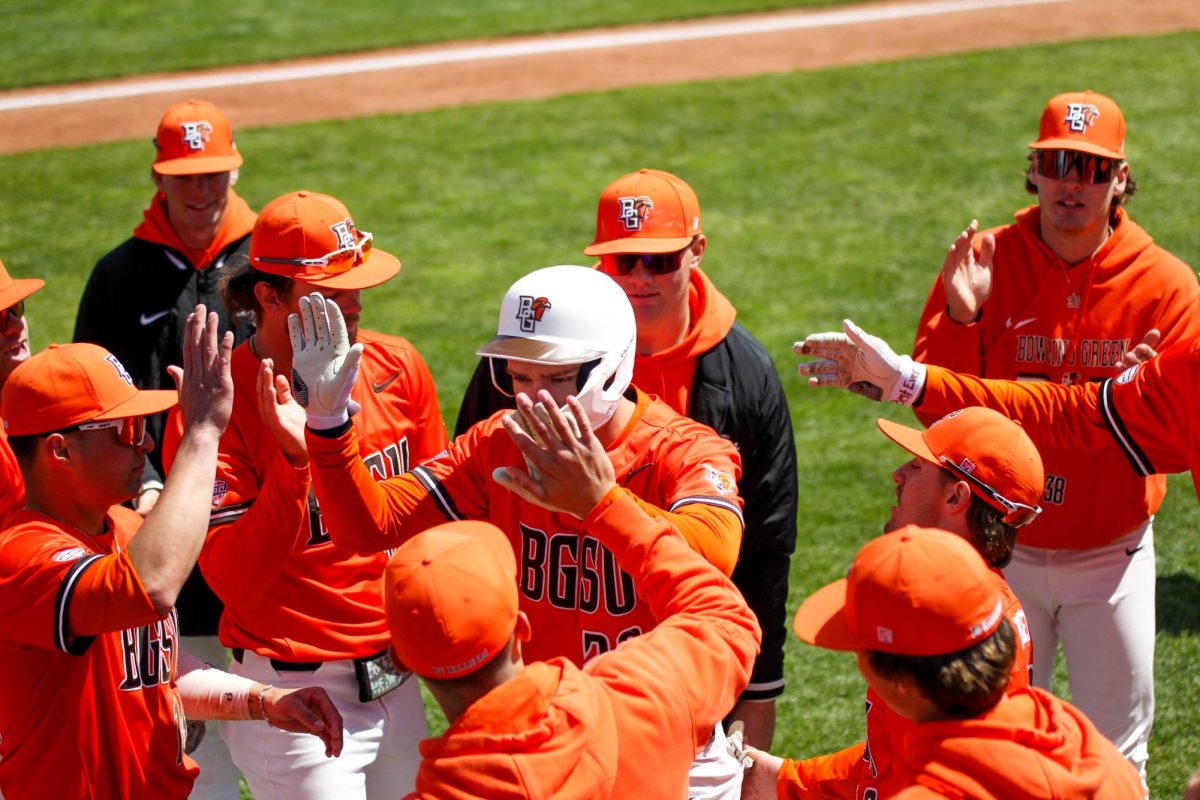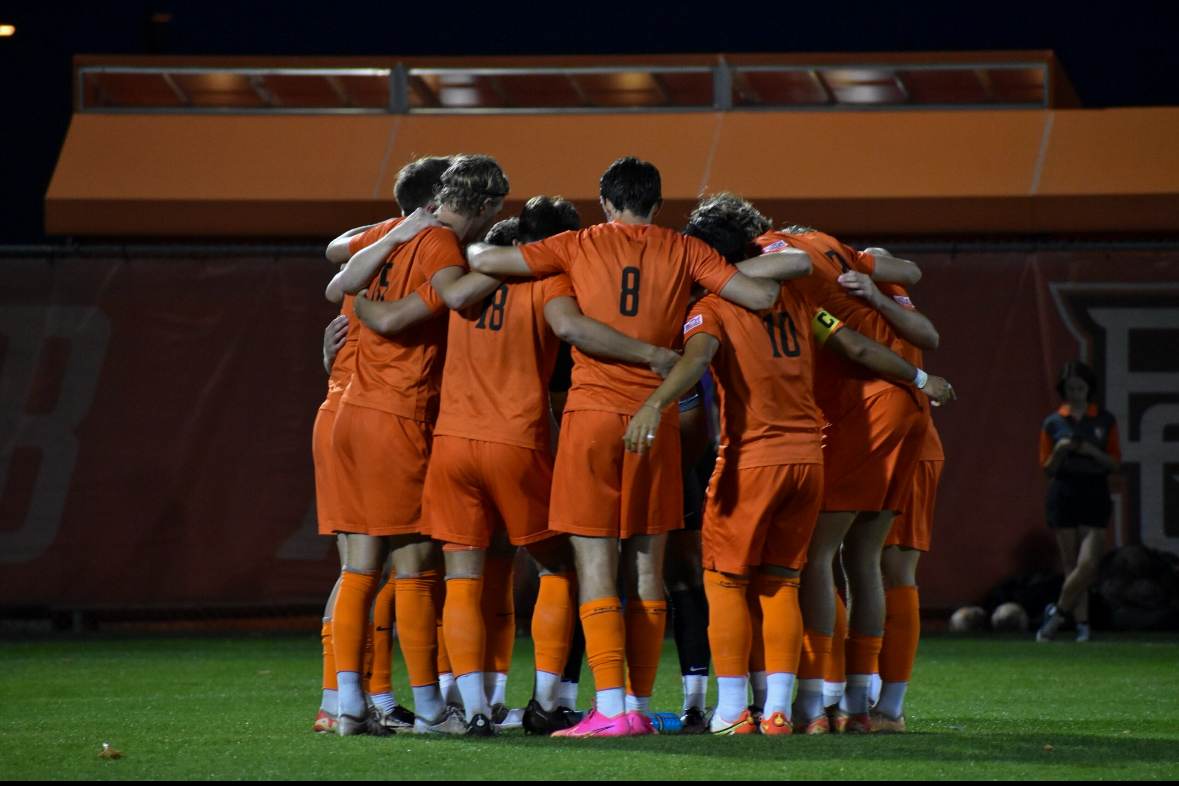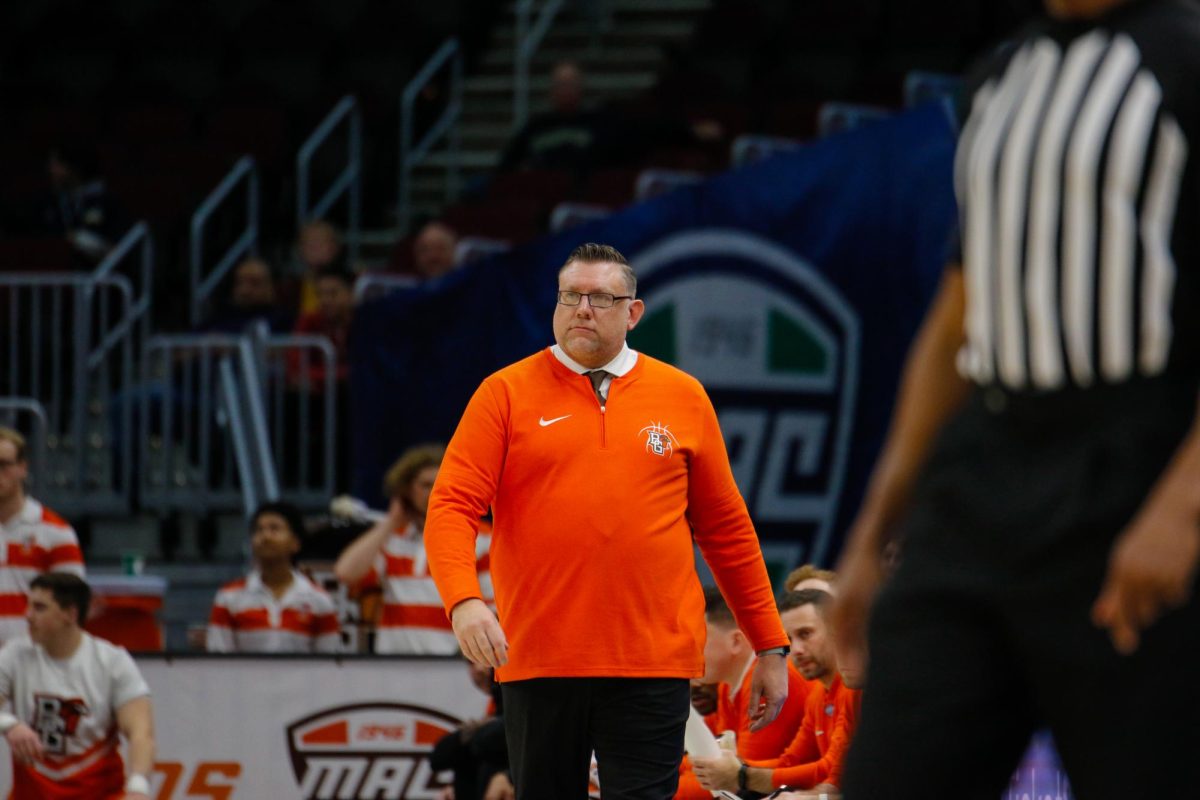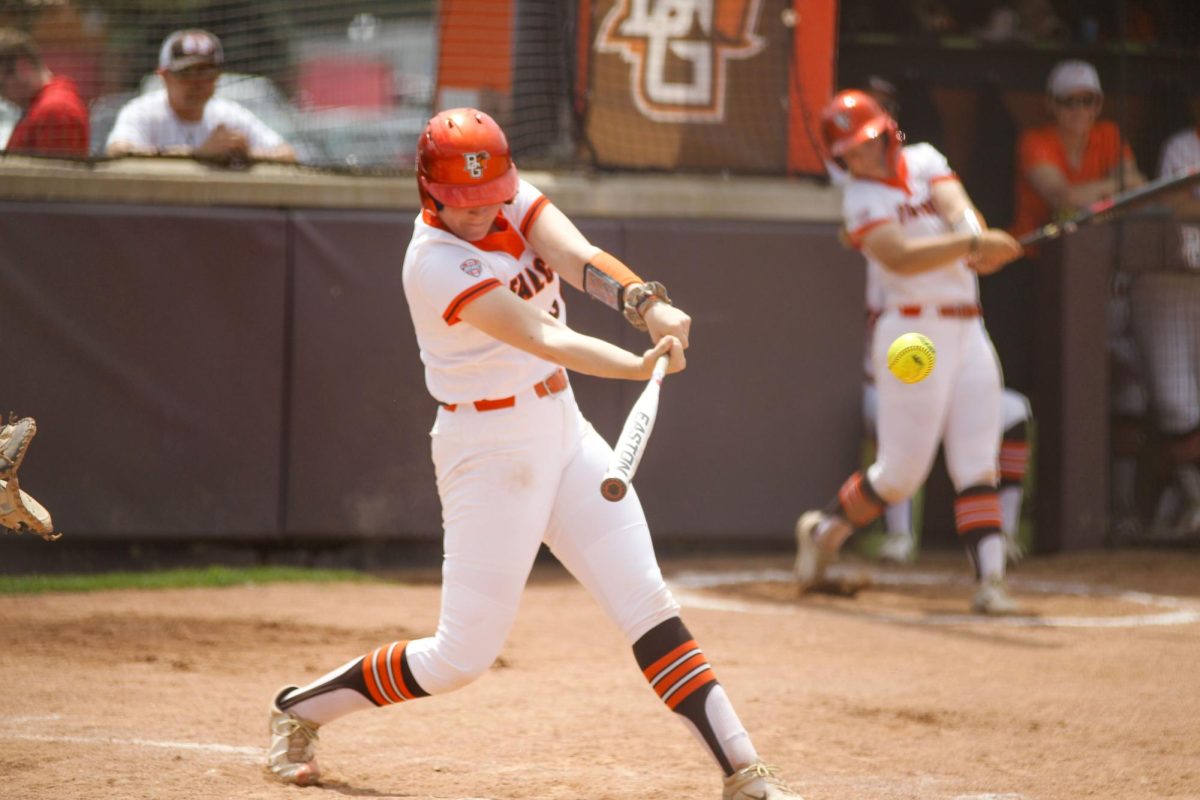Three of the University’s faculty members were among 10 professors given the 2010 Faculty Innovator Award by the Ohio Board of Regents in Columbus. The award is presented for incorporating technology and other methods to make a more efficient learning experience for students, often cutting textbook expenses significantly.
The honorees are Seth Oyer from the department of Journalism and Public Relations; Rachel Vannatta Reinhart from Leadership and Policy Studies; and Bonnie Mitchell from the School of Art.
“I feel very honored that I was selected,” Oyer said. “It’s nice to be acknowledged for trying to do some innovative things in the classroom.”
Oyer is a “self-admitted techie” with experience in the field of public relations, and he said he requires his public relations students to use a Twitter account to access current events for future classes. He also manages http://www.docoyer.com, a website that offers useful links for his classes.
“Things like Twitter and other sorts of social media are being increasingly used and should be increasingly used,” Oyer said. “The right way is in public relations.”
Financially useful for students are the texts Oyer makes available for reading at the library. The copies are able to be read in the library for a two-hour time limit, allowing easy access to all students.
“I understand what it’s like and how expensive books are,” Oyer said. “It’s nice to offer them that option.”
Saving time and money is especially critical in online courses, and Reinhart said she has found a way to do that for her statistics in education graduate course through online videos and texts.
Reinhart has taught the class online for five years, with only one class including face-to-face lectures. Reinhart said she found that students grasped statistics better when she explained the material face-to-face. However, the University’s large number of off-campus cohorts made direct lecturing a difficult task.
“We don’t have a lot of faculty to go off-campus and teach the class,” Reinhart said. “There was a need to get it online.”
Reinhart found a compromise through online videos that she made over the course of a semester with WBGU and Instructional Media Service’s cooperation. The videos total 13 hours of Reinhart giving lectures, solving problems and detailing concepts for the students that the online texts compliment.
“Students aren’t just watching a video,” Reinhart said. “They’re really following along with activities [from] the text with the video.”
Reinhart said she believes the labor-intensive semester spent making the videos was worth it, largely because of what the students get out of it.
“It’s interesting,” Reinhart said. “[Students] watch me on the video for hours and hours, so they feel like they know me.”
In addition to maintaining the personal touch of a professor in an online setting, Internet resources are especially useful for developing thinking skills and conserving paper, Mitchell said.
Mitchell, a Digital Arts instructor, has created course-specific websites for her students. These provide numerous links to lecture-related material, including videos, illustrations and blogs, according to a press release.
Mitchell said she believes using the Internet helps students further develop their research skills, as its constant updates allow for a more contemporary perspective on class issues.
“I couldn’t teach without it,” Mitchell said. “There’s a lot more information than you can find in any one textbook.”
As one of the first artists on the World Wide Web in 1994, Mitchell has embraced the service as an easier way to exhibit artwork that she, her students and colleagues have done.
The websites also provide lasting retention as they are accessible to students after they graduate, giving a more permanent home for course notes than sheets of paper, which Mitchell switched from a while ago.
Mitchell said that her artwork and websites emphasize design, usability and content.
“The content should be useful or meaningful,” Mitchell said.
Oyer agrees that technology is ultimately meant to serve a useful purpose in the classroom.
“I try to use all the tools at my disposal to do the best job that I can for the students that are in my class,” Oyer said. “The more you can understand the tools in your toolbox, the better you can do your job.”






















